Kundera, p. 101
Books and words carry with(in) them the possibility of infinite interpretations, understandings, and discussions. We can from the simplest of words create the most complex of systems.
One might try and imagine if this has been happening forever, or if it is only a recent thing, which it arguably is. The book, The Unbearable Lightness of Being, by Milan Kundera opens up with the idea of Friedrich Nietzsche's eternal return and this sets the philosophical tone for the rest of the book: we are in for an intellectual wildride.
(This book review contains SPOILERS, so read with caution if you want to read the book for yourself.)
The book is not that "heavy" but has its own "lightness". The characters go through their lives, shifting from realising the "heaviness" of their actions and choices to the "lightness" of those choices.
It is an interesting idea, and reading the book almost 40 years after its first publication is surreal in terms of how timely it is. We are often weighted down by our choices, and the heaviness of our day-to-day actions seem to hold us back, but in the same sense, the "unbearable lightness" of our being constantly confronts us: our decisions do not have an impact besides for my own life.
At some stage in the novel, we are given the most beautiful of ideas: our decisions cannot be made again - and this goes against the Nietzschean idea of an eternal return. We cannot theoretically think about how I might have decided in another world, weigh the consequences of my actions, and think about how it might have been otherwise. No, our decisions are final, the only one, and even if they might seem "heavy", they are in fact "light".
Throughout the novel, Kundera takes us on the familiar journey of his characters. Or it felt very familiar to me. A while ago, I read Life is Elsewhere by Kundera, and the book felt very similar in weight, in ideas, in characters.
Kundera feels like a familiar friend with whom you sit and have a coffee, where no time has passed even though you have not seen each other for two or more years.
I digress.
The characters each confront this idea of lightness/heaviness. Their choices inevitably change the course of their lives, and sometimes they become a burden. For example, the leading male character, Tomas, is constantly confronted with choices that he needs to make. And Kundera takes us through the mind of the character in the moment, but in the end, he sometimes does not make the choice. But this in itself is also a choice.
Even today, or especially today, we are always thinking ahead, how will choice XYZ impact my life ahead, and so on. We are confronted by the heaviness of our choices, the lightness of our being is never considered when we take life seriously. Or, we look at others and envy them, thinking that they live their lives without much thought, and our lightness of being becomes an unbearable burden that nauseates us.
And this is in some sense good. But let me briefly return to the main idea of the book, as I read it. We live our lives making choices that we think are heavy, that they will impact our lives in unseen ways, and we burden ourselves with them. Following Nietzsche, we try to decide on what is best, what can we will to happen for eternity? And this will become the choices we make.
But Kundera wants us to think about this differently. We cannot think this way, because our choices are not as heavy, they are light, we cannot eternally return and will our actions in a Kantian sense to become a yardstick for what to do or ought not to do. We are in fact in the moment, living a life stuck in the lightness of being.
Our choices, even if they feel like a burden, will only affect my life in the moment. There is no attempt to weigh them, to let them play out in different scenarios.
This might seem very fatalistic, and give the impression that our choices do not mean much. But in fact, one might note the opposite, and this is probably where the unbearable part comes in: we need to stomach the idea that our choices only impact my life. The one I am living now, here, and not something like a chess game that I can try to play out different scenarios.
And this is the beautiful kind of paradox or contradiction in which Kundera sits: my decisions, even though they feel like the heaviest thing (burden), they are actually light, and we for the most part do not think about them in enough detail, and this becomes a strange unbearable burden.
There are other less philosophically relevant moments in the book that I really enjoyed. The most striking, with which I opened above, was the reference to universities full of works to which no one ever returns. Words fill up the space, and they become graveyards no one visits again. It struck a chord because I am writing my PhD with the awareness that no one will really return to it.
There were also some elements that did not make sense, historically relevant ideas to which I have no link. In my previous expeditions into Kundera, I also felt this alienation from a history I am not part of. But this warrants a second read, returning to the book, transformed.
I will definitely read this book again in the future.
Philosophical literature of this kind is never easy to read. We burden ourselves with the weight of the meaning. But this is what makes them worth the read.
Like with reading Albert Camus, Orhan Pamuk, and Jean-Paul Sartre, I find myself yearning to understand Kundera and his world. I find myself contemplating my own life in different ways.
Have you ever tried to read these philosophical works?
For now, happy reading, and keep well.
All of the writings, opinions, and musings are my own unless stated otherwise or hyperlinked. The photographs are my own, taken with my Nikon D300.
The Fermented Philosopher's Library
| 🕮 The Book of Malachi | 🕮 The Outsider | 🕮 A Clockwork Orange | 🕮 Perfume |
|---|---|---|---|
| by T.C. Farren | by Stephen King | by Anthony Burgess | by Patrick Suskind |
| 🕮 The Uninvited | 🕮 Life Is Elsewhere | 🕮 Philosophy as a Way of Life | 🕮 The Space Between the Space Between |
|---|---|---|---|
| by Geling Yan | by Milan Kundera | by Pierre Hadot | by John Hunt |
| 🕮 Ezumezu: A System of Logic for African Philosophy | 🕮 Adjustment Day | 🕮 Philosophical Praxis: Origin, Relations, and Legacy |
|---|---|---|
| by Jonathan O. Chimakonam | by Chuck Palahniuk | by Gerd Achenbach |
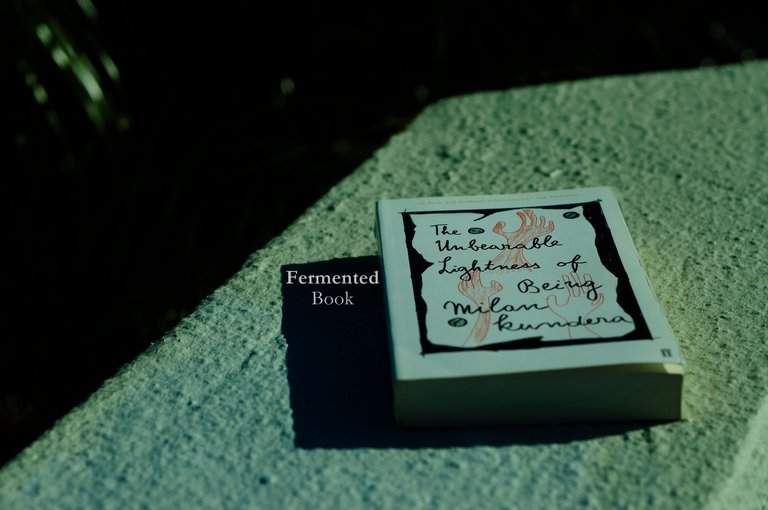
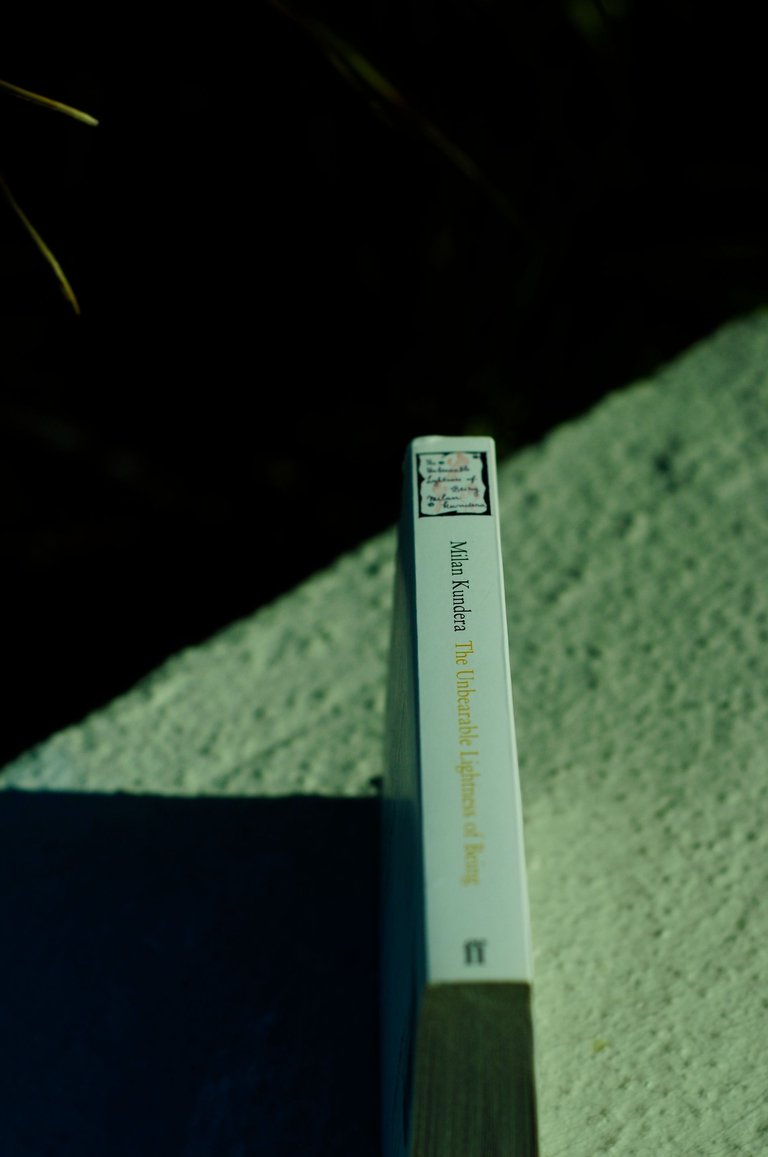
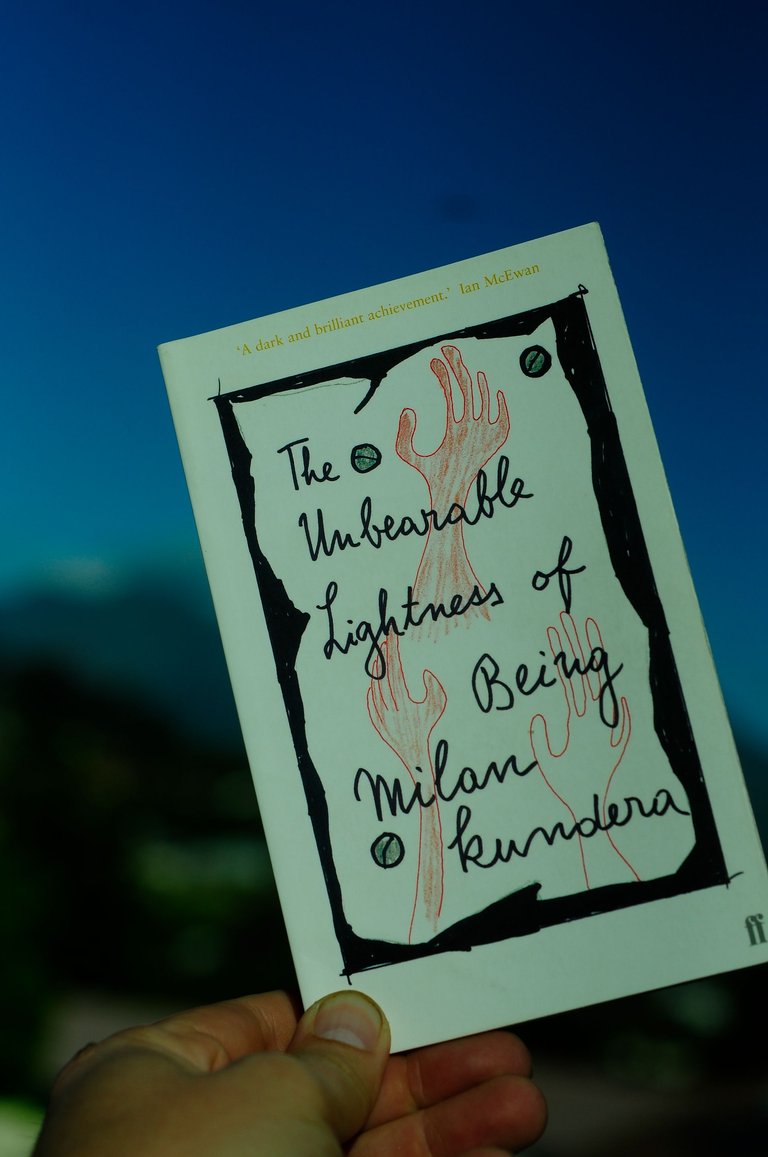
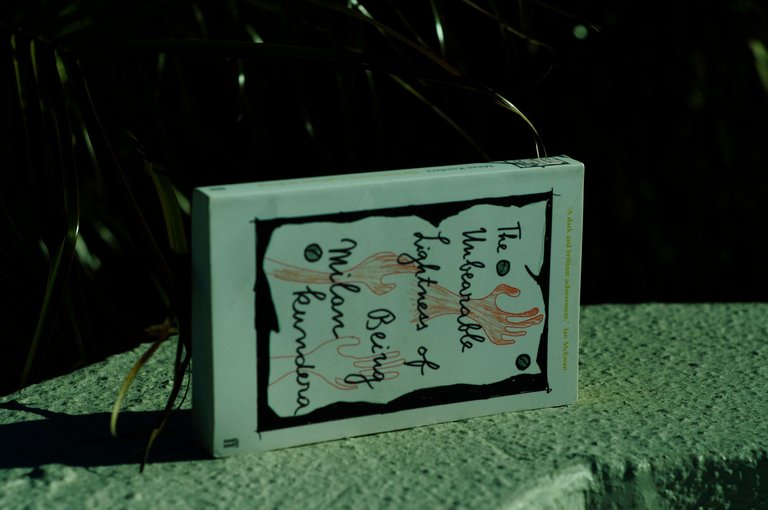
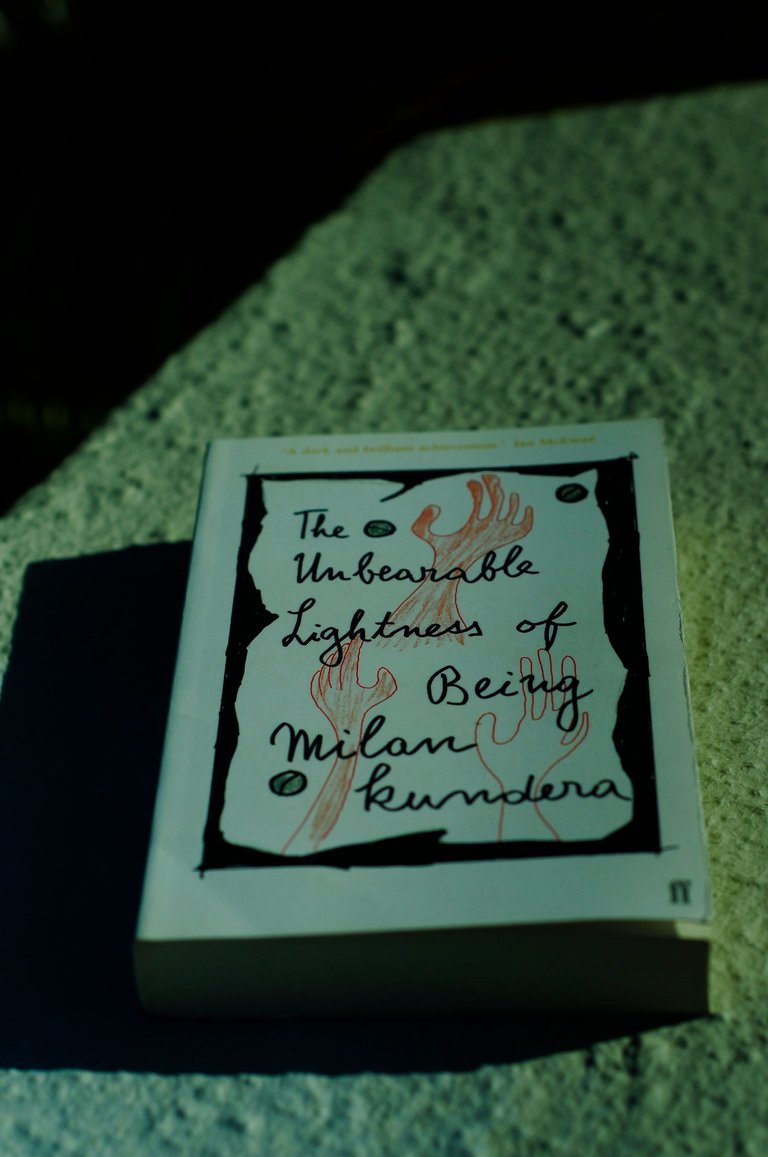
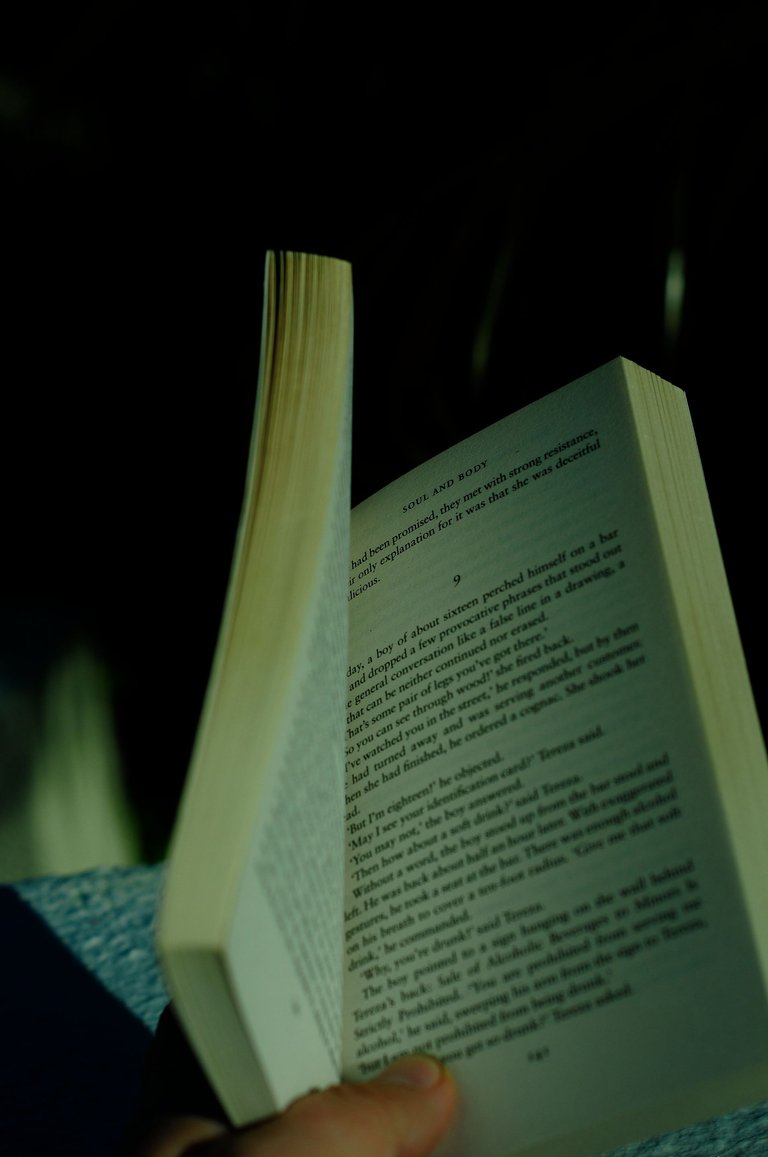
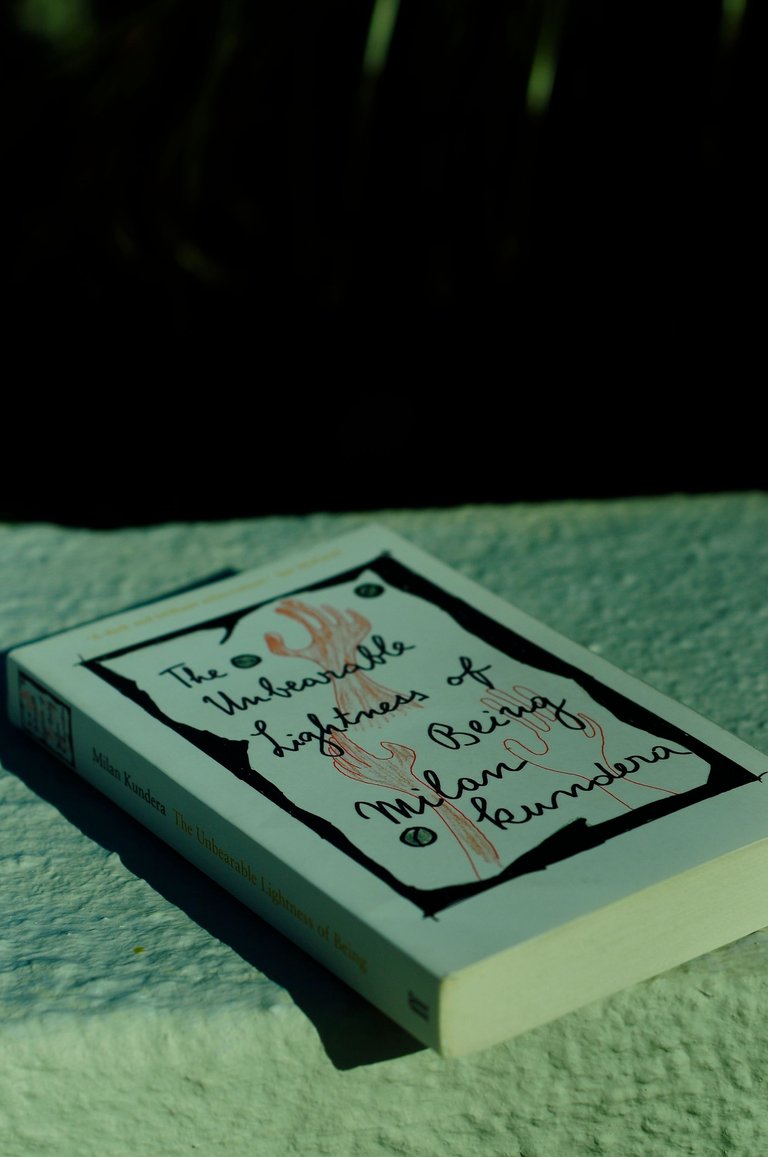
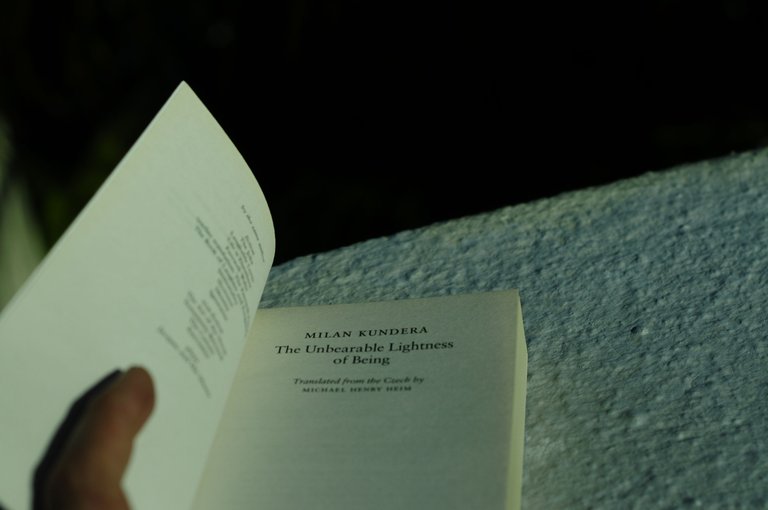
Congratulations @fermentedphil! You have completed the following achievement on the Hive blockchain And have been rewarded with New badge(s)
Your next target is to reach 460000 upvotes.
You can view your badges on your board and compare yourself to others in the Ranking
If you no longer want to receive notifications, reply to this comment with the word
STOPCheck out our last posts: